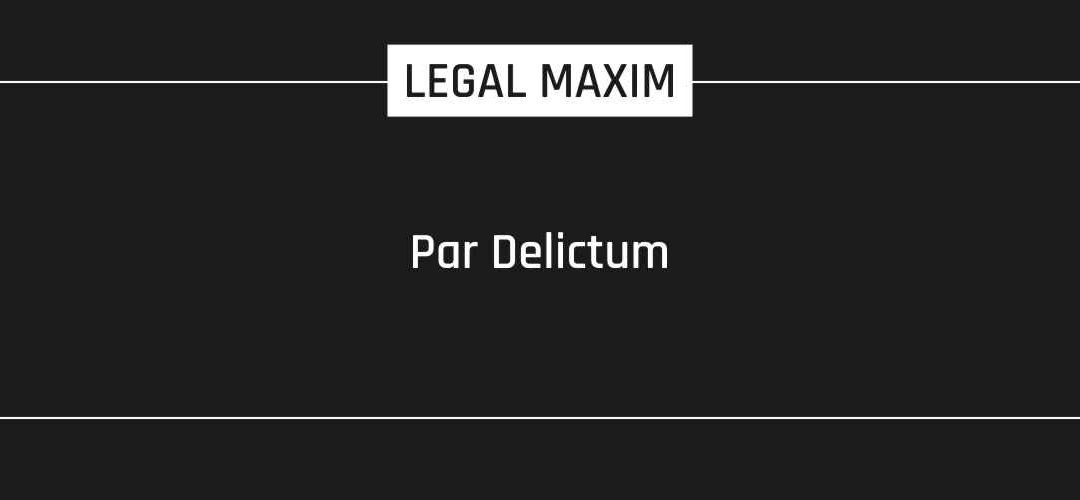Literal Meaning
In equal fault
Origin
Latin
Explanation
It is a descriptive phrase that indicates that parties involved in an action are equally culpable for the wrong committed. In simple terms, when the parties to a legal controversy are in par delictum, neither can they obtain affirmative relief from the court, since both are at equal fault or of equal guilty. They will remain in the same position they were, in until the action begins.
The theory of par delictum stipulates that a group will not be pleased by a court of law when it is inappropriate to treat itself. The law is for the contractual parties’ legal culpability, not their civil responsibility. It is oppression on one side, and submission on the other.
Illustration
It never can be predicated as par delictum when one holds the rod and the other bows to it.
The parties are not to be regarded as being in par delictum where the agreement is merely malum prohibitum, and the law which makes it illegal was intended for the protection of the party asking relief.
Case Laws
In Hitler Adolf Klokow vs. Michael Boyton Sullivan, the Court expressed that in general, where public policy considerations do not favor either party, the par delictum rule will operate against the plaintiff. At an exception stage, however, the rule will generally defeat a plaintiff’s claim only in the clearest of cases.
In Androcles Ndlovu vs. Ngwato Land Board, the court held that even assuming that there had been in existence some sort of illegal oral or tacit lease, the court satisfied that the par delictum rule could not have been invoked to prevent the respondent from evicting the appellant.
